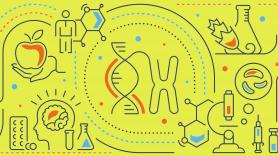If we have to choose a definition of synthetic biology, it could be this: the rational engineering of biological systems to develop applications. This concept encompasses important, radical breakthroughs like modifying the human genome, gene therapies and modern immunotherapy to fight cancer. It also includes modifying bacteria and microorganisms so they take on new properties and can be used in medicine, for recycling or to fight the climate crisis.
This whole world of possibilities means synthetic biology is already considered a basic component, along with artificial intelligence, of the fourth industrial revolution. But this topic also generates lots of debate: both on how to promote and develop it, and on the ethical conflicts that come along with it.
To discuss the latest advances and debates regarding synthetic biology, international experts met for a session of B·Debate, an initiative of Biocat and the ”la Caixa” Foundation to promote scientific debate, with the Center for Genomic Regulation (CRG).
CONCLUSIONS:
• Synthetic biology offers a world of possibilities that make it a key part of the new industrial revolution.
• The genome is now a treatment goal. This is in large part due to CRISPR, the new gene-editing technique, although it still needs deeper understanding and improvements to expand its applications.
• A significant portion of synthetic biology focuses on modifying bacteria, which can then be applied in fields ranging from vaccines and cancer therapies to recycling plastic and combating the climate crisis.
• The move from basic research to real-life applications is still up for debate, as is the wide range of ethical issues that some of these tools bring up.



